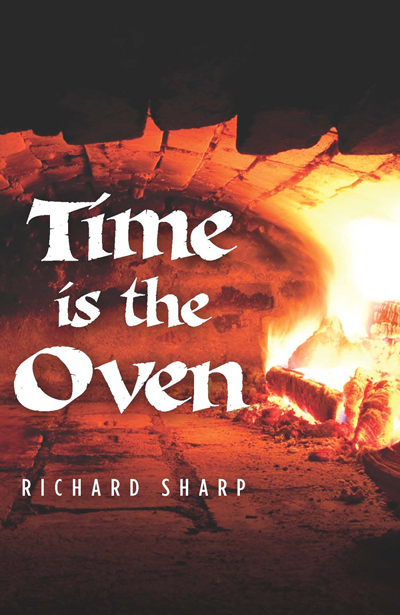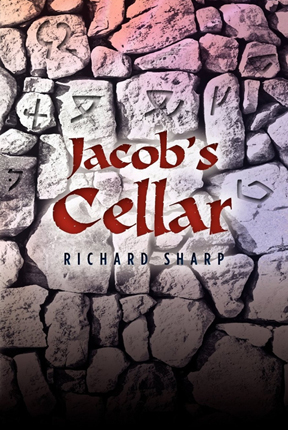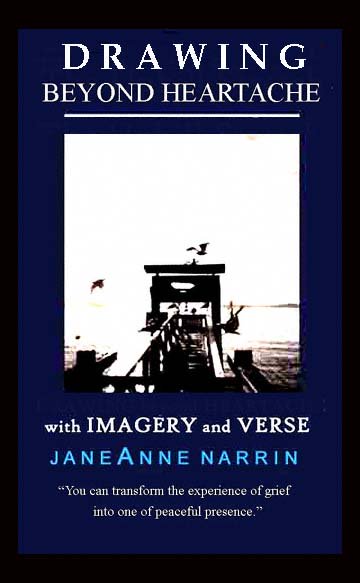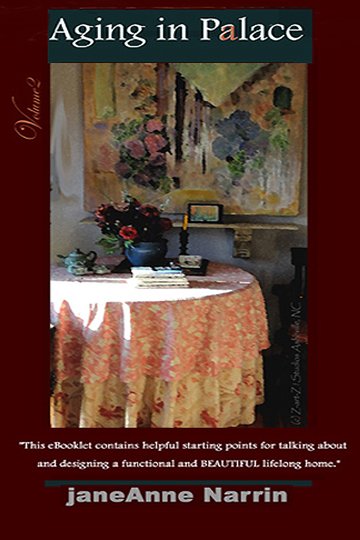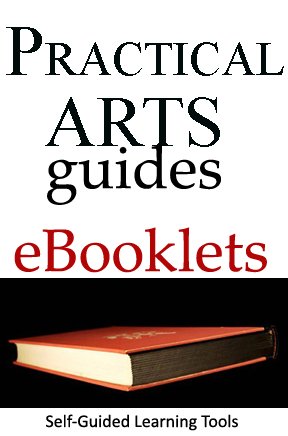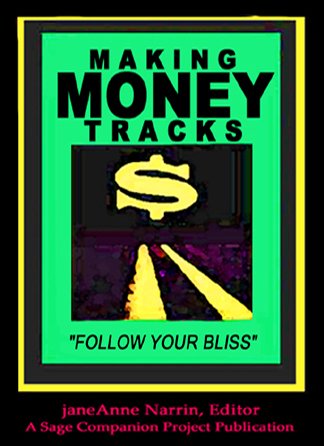RICHARD SHARP
UNREPENTANT

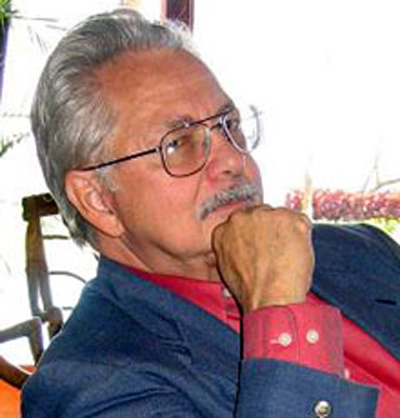
Richard Sharp
UNREPENTANT SAGE COMPANION
Winner of the IPPY Award Best Adult
Fiction eBook
Having earned a BA from Harvard as well as a Masters
Degree from Princeton, he launched a career as an international development
consultant before recently retiring. His work throughout the US and in over
four dozen countries provides authentic settings for his fictional work.
He is the author of Jacob’s Cellar, Time is the Oven, The Duke Don’t Dance, and his most recent novel, Crystal Ships. His publications have garnered him multiple accolades, including a Kirkus Star and place on the Kirkus Best Self-Published Book list (2013), the an Independent Publishers gold medal for Best Adult Fiction E-Book (2014), a finalist finish in the ForeWord Clarion Firsts (2012) and Reader’s Favorite (2012) categories, and even a Deane Ritch Lomax Poetry Award for an extract from Crystal Ships.
SCROLL DOWN FOR SHARP BOOK NOTES & INTERVIEW and/or
GO DIRECTLY TO RICHARD SHARP'S UNREPENTANT COLUMN
BOOK REVIEW CRYSTAL SHIPS
“Full of tragedy, hope, and a knowing humor, Crystal Ships
ultimately stands
as a novel for its generation that is simply breathtaking in
scope.”
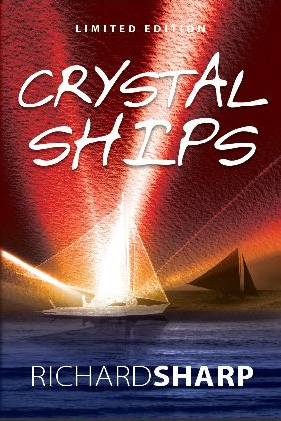 |
|
I had to say,
“Right On!” as I read the dedication to Richard Sharp’s latest novel. Crystal Ships might be regarded as a companion piece to Sharp’s prize-winning
Indie novel, The Duke Don’t Dance as it
is equally immersed in the popular culture and politics of its time. But
unlike The Duke Don’t
Dance which paints a picture of a generation,
Sharp’s latest novel focuses on a specific period -- 1960-1978.
You will find that it reveals the spirit of this period,
encompassing tragedy, social and cultural perspectives, and humor. Dedicated to
the survivors it must be.
Of Crystal Ships, one reviewer says: “A sweeping saga of American
idealism and disillusionment, Richard Sharp’s exquisite Crystal Ships traces
the lives of seven friends through two decades of violence, hope, and cultural
change Sharp spins an epic tale that starts back in the heady days of the
Kennedy administration, when Camelot appeared as a shining beacon of hope for
all Americans.”
Yes—and then there is that particular intensity Sharp produces—
“Full of tragedy, hope, and a knowing humor, Crystal Ships ultimately stands as a novel for its generation that is simply breathtaking in scope.”
Here is a novel orchestrated within an era laden with moral
ambiguities and the ambiguities in the protagonists themselves. Alive with emotive
threads that play piercingly throughout the novel, Sharp rivets the reader and
keeps pages turning. “Sexual tension - passion - the dreams of youth - yearning
for more - reaching for the stars, along with the disappointments life hands to
everyone - it's all wrapped up in one perfect rendition dedicated to the 50th
memorial of JFK's assassination.”
Early on, Sharp introduces us to Lucy, a sexually provocative young girl. With a clap of emotion reminiscent of a performance by Jim Morrison and The Doors, he then makes the reader an eye-witness to each horrifying moment of her rape. At the same time, he reaches within the psyche and defiant spirit of this character allowing her to react in a darkly comic victory scene..
“ I feel that the
credibility of my female protagonists owes a lot to … Isabel Allende’s novels
and memoir.. ..” Sharp tells me in an interview.
Assassinations, drugs, gender conflicts, and the Vietnam War come crashing through Crystal Ships as the voices of Sharp’s haunting, individually defined characters speak.
In his career, Richard Sharp traveled the world. Clearly he writes from first-hand knowledge of the locales he chooses, as well as of the war itself. Sharp brings these locations alive and “…animates the Vietnam era with sharply drawn characters and intricate storylines,” one reader says. “Every great song, every great artist, every great movie, every tragic war and cultural climax resonates with you like walking back into your childhood home and having the smells transport you back.”
YOU CAN FIND ALL OF RICHARD SHARP'S NOVELS AT POWELLS
go to the
CRYSTAL SHIPS
AUTHOR INTERVIEW 2014
"Sharps flair for details is exquisite and delightful..."
The novels of Richard Sharp are
beautifully written. His stories are the hand-woven work of a master- heady and intense. Sharp takes you to a place you have not been before with tales that are forthright, yet simultaneously equivocal If you seek an intricate and magnificently -crafted perspective on stories of a generation you may find this in the novels of Richard Sharp.
About the Novels of
RICHARD SHARP
 |
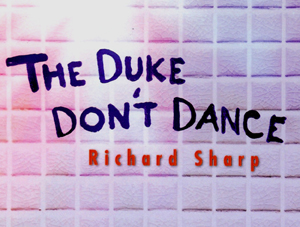 "Best Indie Books of 2013"
|
Sharp's Books are available at POWELLS
Sage Companion "Unrepentant Interview" 2013
Novelist, Richard Sharp gives readers insight into an amazing emerging talent. Richard decided to take a swing at writing when he UN retired. There follows a slightly off-beat interview in which you cannot miss the author's flair for getting right to the bottom line and doing so with humor.
His novel, The Duke Don't Dance (see below) won the IPPY Best Adult Fiction Award, and his next novel, Crystal Ships, has just been published.
Conversations with Richard Sharp and other Sage Companions
Sage Companion: What question have you always wanted to be asked in an
interview? How would you answer that question?
Richard Sharp: . Will you accept the Pulitzer? A. Are you nuts?
What do you want Sage Companion readers to know about your work?
My contemporary stories (“The Duke Don’t Dance,” and later 2013-2014 “Crystal Ships”) could be about you or your acquaintances in some indirect way. My historical novels (“Jacob’s Cellar,” “Time is the Oven”) could say something about your heritage. Aren’t you curious?
If you could trade places with any other person for a week, famous or not famous, living or dead, real or fictional with whom would you change places?
Like the characters in my
novels, I think life is about coming to terms with yourself, and I resist the
idea that being someone else might be preferable. If I have to choose though,
it would be the Bill Murray character in Groundhog Day…and I’d only need one
day, not a week.
How would you describe yourself in five words?
Regular guy; irregular attitude [I’m saving one word for later.]
How would you explain a social network in five sentences to a fourth-grader?
A young techie once made a bet
He could make you new friends on the Net
With a network much the same
As a video game
To find a real or pretend social set!
RICHARD SHARP
I suppose that at 60-70 it was the decision to write novels; somewhere in the future it’s likely to be the decision that it’s time to stop.
What age-related hazards do you meet almost every day?
Simply that you become more vulnerable as you lose strength and resilience, so you need to be aware to those failings and be prudent without becoming timid, or giving up more than you need to. I wonder sometimes if those scooters they pitch on TV don’t result in more harm than good by encouraging the elderly to become invalids. There are many other aspects of healthcare and accepted elderly lifestyles that can have the same effect.
What advice do you have about how to spend your free time after you (UN)“retire”?
Minimize your free time and you don’t need to worry about it.
In one sentence, what is your best AGING 101 ( AGING 102, 201, 501) advice?
Did you need Teenage 101, Twenties 101, Mid-Life
101? Yes, of course you did. Did you take advice? No. Do what you did then:
skip class!!
What is the essential thing to remember as one approaches and/or moves into “elderhood”?
It’s a natural process; get over it.
Define “young at heart” as it relates to you. And how do you envision your “white-haired” years?
I never liked the Sinatra song “Young at Heart,” preferring Dylan’s “My Back Pages”: “Ah, but I was so much older then. I'm younger than that now.” You need to read the full lyrics to truly appreciate them. But as to those words and old age in general, I take these years as liberating. I’ve nothing more to prove and anything I accomplish now is a bonus.
RICHARD SHARP
What are the most positive changes you see happening for older adults in the future?
Progress in
forestalling the various forms of dementia. “No one gets out of here alive” but
as long as you have your mental faculties, you can make the best of it.
And what is your best advice for
leading edge boomers and older adults in terms of changing
aging stereotypes?
Don’t conform to anyone’s stereotype: your peers, younger generations, the media. Do what works for you.
Have you experienced ageism?
Oh, probably, but if so, it’s their problem, not mine.
What’s your opinion on current cultural/sociological narratives
in terms of maturity, late life, the
purpose of elders, the nature of retirement
communities (are they custodial and repressive?)
I don’t believe that the elderly have any special obligation to pass down the alleged wisdom of the past to younger generations other than to be honest about your past life and times. After all, we lived through very imperfect times and you couldn’t revert the present to past cultural/sociological relationships however hard you tried. Let the current generation pick and choose – it’s their time.
As to retirement communities, all institutions inevitably have some custodial and repressive aspects and occasionally a Nurse Rached turns up (or, worse yet, overly protective staff that treat the aging like pre-K), but that’s just something you have to put up with if you become dependent.
What’s your opinion on the relationships between older adults and younger generations?
The young find it hard to imagine the elderly in their youth; the elderly have a hard time imagining the young as they mature. That’s the source of most relationship issues between them.
RICHARD SHARP
What is your greatest contribution to the world to
date?
I refuse to answer that
question on the grounds that it might tend to incriminate me.
Who is your audience?
“The Duke Don’t Dance” and a second novel in progress (“Crystal Ships”) concern the lives of ordinary American men and women in the latter half of the 20th century. Two novels (“Jacob’s Cellar” and “Time is the Oven”) similarly concern American lives in the latter half of the 19th century. All focus on the inner lives of the protagonists and relationships among them.
My audience
comprises readers of all ages interested in literary and historical fiction,
not tales of heroes or action adventures. My stories are for those open to an
irreverent take on the time period or setting of the novel and not stuck on
stereotypes. My readers appreciate a dry wit, are tolerant of narrative beyond
dialog and descriptive scenes and do not require black and white distinctions
between good and evil.
How did you get interested in creating work in this particular genre?
I was the youngest of a large family whose ancestors on
all sides immigrated before the American Revolution and my career was largely
in international development consulting and research. With this background I
became interested in American historical fiction at an early age and later in
grounding fiction firmly in accurate portrayals of the cultural-political
setting of an era. International settings related to my work history emerge in
my more contemporary work.
What kind of research do you do?
Very extensive research on specific places and time periods with a focus contemporary popular culture (songs, literature, movies, etc.)
What's a typical working day like for you?
I’m most productive in the mornings and tend to leave the
less creative activities for the afternoons, though it varies day to day. When
I’m really into the drafting, I go into a sort of writer’s trance where I am
pretty oblivious to anything going on around me.
What is the most challenging part?
Writing is a marathon and avoiding impatience with your progress is difficult but essential. I think writer’s block often is simply frustration with the pace of your work. The other great challenge is having to market your work, not just produce it.
What's the best thing about being a creative person?
It creates independence, since it doesn’t come from
outside people or events. A good reason to try to be more creative as you grow
older.
What are you working on now?
A novel “Crystal Ships.” The name is taken from an ancient Irish legend and a Jim Morrison song. It is set in roughly the same time period as “The Duke Don’t Dance” but with an entirely different set of characters. A mystery overlaid on a philosophical reprise of an era, it should be published by late 2013.
RICHARD SHARP
Are there any occupational hazards to being a creative
person?
Conventional people.
Do you ever wish that
you had an entirely uncreative job, like data entry or working in a factory?
I once thought about
running for Congress.
What is your favorite line of poetry?
It is a line in German by Hermann Hesse beginning “Wie du, Vorfahr und Bruder, geh auch ich [Like you, ancestors and brothers, I go also],” then going on to admit to the zig-zag pulls of animal instinct and spirit, wisdom and stupidity.. that is, the fallibility of all people, as is reflected in my own protagonists.
Who would play you in a film of your life? And who would narrate it?
The Dos Equis guy. James Earl Jones.
Do you have a Dog? Cat? Goat? Name(s)- and a few words for our readers about them- BTW, what is your favorite animal?
My dog, Ernesto, is named for Che
Guevara, my hero during the Cuban revolutionary struggles against the corrupt
Batista regime before Fidel came to power. He is Havanese and quite rebellious
in his own right.
If you won $30 million in the lottery, what would you do with the
money?
I’d probably be very prudent, but my “far out” idea would be to strike a bargain with certain historic properties in warmer climates, where I would donate money for preservation in exchange for annual periods of residence.
What are you reading these days?
Various Indie novelists; one must support
one’s own.
If someone wrote a biography about you, what do you
think the title should be?
Regular Guy; Irregular
Attitude
When are you going to write your autobiography? And in
100 words or more, give us a summary.
It will never happen. I prefer to remain a
man of mystery.
RICHARD SHARP

|
WINNER IPPY Award Best Adult
Fiction eBook "The recognition is greatly appreciated. I also would very much like to thank the many reviewers and interviewers who helped publicize the work, but especially JaneAnne Narrin- The Sage Companion Project WhiteHair365.com for editorial suggestions that were incorporated into the Ebook version of the novel... ." Richard Sharp RICHARD SHARP |
SEARCH HERE FOR MORE OF RICHARD SHARP'S AWARD WINNING WORK
 unrepentant " I do not buy into RICHARD SHARP |
10 Unrepentant Thoughts of Spring
" Baseball was always much more dramatic on radio than on TV." "
As you grow older, for perennials that revive themselves in the spring. I’m speaking of both flowers and people." and 8 more |
MORE
Richard Sharp's Unrepentant Column
Unrepentant and ten reasons why
I do not buy into generational stereotypes
"MLK Viet Nam and Such"
BOOK NOTES
RICHARD SHARP
"Sharps flair for details is exquisite and delightful..." The Duke Don't Dance is beautifully written. The story is heady, and the text intense..." "The tale itself is forthright, yet simultaneously equivocal...one man's fictionalized story of a generation..." ForeWord Review, March, 2012
Sharp’s debut is a frame narrative of impressive scope and quality.
Between the visitation and interment of Frank Miller, an omniscient narrator defines the role of seven individuals in Frank’s life. In 22 well-paced, retrospective chapters—beginning in 1960 and continuing at intervals to 2010—readers will come to know and relate to these characters. ...
Stylistically, the novel unfolds by means of colorful dialogue and pungent observations typical of Henry James.
In this novel, a group of friends gathers to pay respect to a retired Air Force Major following his untimely death in an auto accident.
A Bold Look at Motivations
RICHARD SHARP
Sharp’s astute commentary guides the reader through motivations not otherwise apparent.
Many chapters involve Frank’s second wife, Lillian, and his oldest friend, Sam, who brought the two together. Sam, however, keeps from him the high-school intimacy he shared with Lillian. Defiantly promiscuous and rebellious as a teenager, Lillian remains a seductress and risk-taker in adulthood. This includes a liaison with Ted, another of Frank’s longtime friends, before she marries Frank when they are both firmly rooted in middle age.
Business colleagues Ben and Rafi appear at a memorable business lunch in 1980 that provides the title of the novel. As the colleagues argue about the message scrawled above the urinals in the restaurant’s restroom, some readers may find the novel’s irreverence on par with Joseph Heller’s. Beth—one of Frank’s business colleagues—and Sam’s wife, Fran, are also major players, but other spouses, ex-wives, adult children and lovers take on secondary yet intriguing roles. Each of the major characters has something to hide from Frank, primarily of a sexual nature. But Frank has something he hides from them, too, in this sassy and bold look at life well-lived.
"A novel too good to be ignored"
THANK YOU FOR SHARING ON BEING SAGE
follow on Twitter | friend on Facebook |follow on Pinterest |forward to a friend
Collect Sage Companion Practical Arts eBooklets on Kindle
SITE SEARCH
HOME ABOUT US DISCLOSURE SPONSORS DONATE SITEMAP
Disclaimer: The nutritional and health information provided on this site is for informational and educational purposes only. It is not intended to be used as a substitute for professional advice of any kind. This information is not intended to diagnose, treat, prevent or cure any illness. Your use of this website indicates your understanding and agreement with these terms.
R E T U R N T O T H E F R O N T P A G E
aging-in-place, age in place
